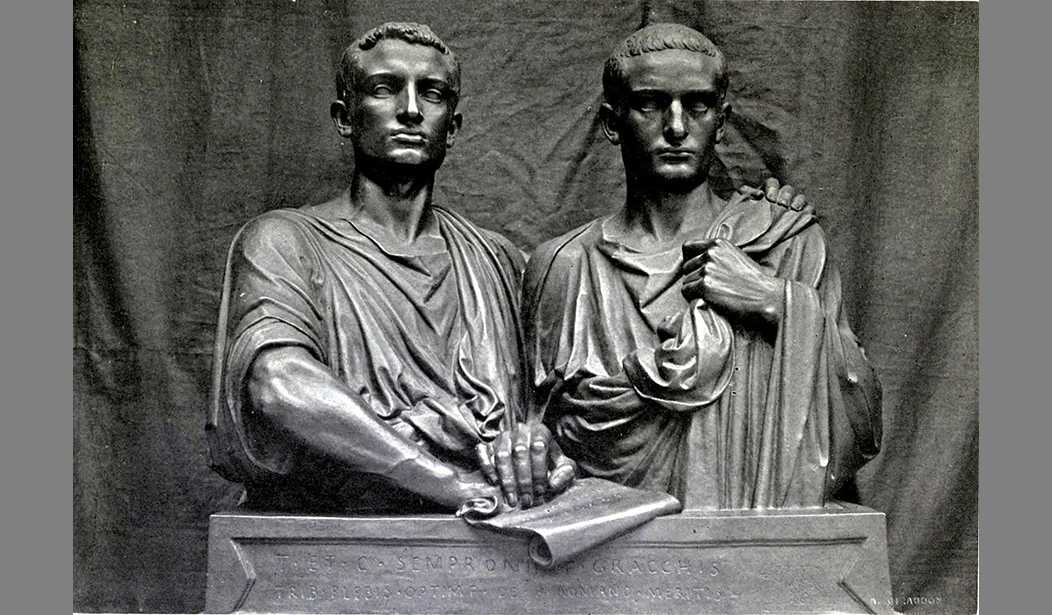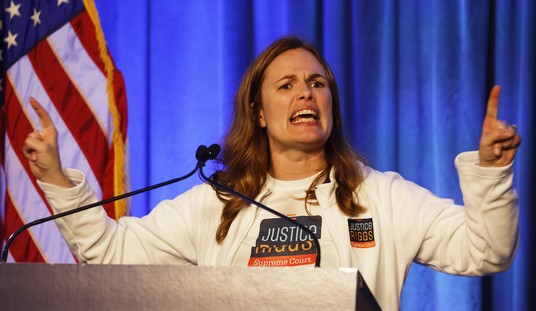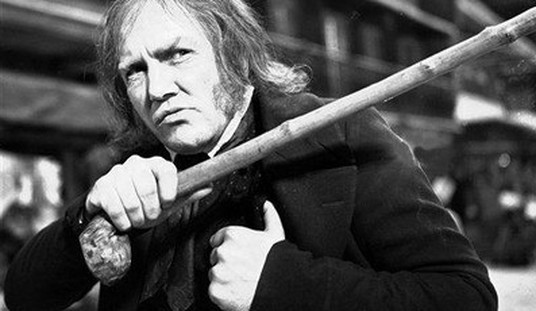There's an old saying, "History may not always repeat but it often rhymes," which is at times attributed to such characters as Mark Twain and Edgar Allan Poe; nobody seems to have a good handle on who originally coined that phrase, but it is accurate no matter who thought it up. History is replete with incidents in which we see this rhyming; a part of that rhyming is the regularity with which Western civilization seems to find itself involved in a major war, which has happened every 80-100 years, like clockwork, going as far back as the War of the Roses.
Another historical rhyme has to do with the rise of the republican system of government and what happens later; one more famous saying comes from one of our republic's founders, Benjamin Franklin, who, when asked what kind of government the Founders had produced, said, "A republic, if you can keep it."
Right now, today, Franklin's warning is becoming especially alarming, especially when we look back to the late Roman Republic and events that began with two populist reformers, the Gracchi brothers.
Gaius and Tiberius Gracchus were brothers living in Rome in the second century BC, and both were populist reformers, especially concerned with land reform. Now a complete retelling of the events surrounding the Gracchi could and has filled several books, but the broad strokes are these: The older, Tiberius, as Tribune of Plebs, was set on reforming land ownership. At this time, much Roman agricultural land was in the hands of a few very wealthy men, mostly of the Optimates class; in other words, the very rich men who used their positions in or connections to the Roman Senate to grow ever wealthier. (Sound familiar?) Tiberius was pushing legislation that would prohibit any one man from owning more than 500 iugera of public land, which at the time more and more of was coming under Roman rule. The Optimates, of course, didn't like this; they were, after all, the ones that owned most of that land. Tiberius, when seeking a second term as Tribune, was accused of running for the office illegally; at the election, violence broke out. Tiberius was beaten to death, as were as many as 300 of his followers.
Enter the younger brother, Gaius. Gaius kicked his brother's reform agenda up a notch. He renewed attempts to pass his brother's land reform laws and also introduced legislation forbidding the Roman Army from conscripting anyone under 17 and requiring the Army to pay for soldiers-issued equipment (previously, this was bought at the soldier's expense). Again, the Opimates rallied, Gaius lost support after the constant drumbeat of demonization, and eventually, the Senate passed a law that gave the Senate the power to declare anyone an enemy of the state and to execute them without a trial. Gaius, learning of this, decided to avoid his brother's fate and committed suicide in Rome, on the Aventine hill, in 121 BC.
In summary: Two populist reformers went against the establishment, the wealthy and powerful of their time, and were destroyed by the system. (Sound familiar?)
See Related: Could Next Week's CNN Debate With Trump Be Joe Biden's Waterloo Moment?
Former Obama Mega Fundraiser Now Backs Trump; Biden 'Has Been Asleep at the Wheel'
Now, and again, we will be looking at the broad strokes, fast forward to 104 BC, and a Roman man named Lucius Cornelius Sulla. Sulla was a Roman military commander who had fought in the Numidian War under the command of one Gaius Marius. Sulla was a man of unchecked ambition; after the Numidian War, in which Sulla distinguished himself by assisting in the capture of the Numidian King Jugartha, Sulla returned to Rome and ran for the Consul's chair, which office he held from 104-101 BC.
Sulla's ambition did not sit well with his former commander, Marius. After a series of conflicts between the Sullan and Marian factions that led to Sulla leaving Rome and campaigning abroad - again, broad strokes, as this would fill several books - Sulla returned to Rome in 83BC. During the conflicts, Marius had himself fled Rome for a time, going to Africa but returning to Rome to be declared Consul but dying in 86 BC. Sulla was accompanied to Rome by the military commanders Caecilius Metellus Pius, Licinius Crassus, and Gnaeus Pompeius Magnus. In the final battle of what we now call the first Roman Civil War, Sulla's forces beat the remaining Marian factions just outside of Rome's Colline Gate. The Marian forces that survived were taken prisoner and, in time, executed, and their bodies thrown into the Tiber; as many as 10,000 Marians were treated thus.
Sulla had Marius's ashes exhumed and thrown into the Tiber as well. He had 80 Senators and as many as 2,600 of the equestrian class killed or exiled, and was appointed Dictator, given absolute power over Rome. He instituted reforms that favored the Optimates and reduced the power and prestige of the Tribunes of Plebs, who represented the common people, including eliminating the Tribune's power of veto. In 79 BC, Sulla retired to Naples, dying a year later.
There was one young man, however, a young Roman Army officer who had supported Marius but somehow escaped Sulla's retribution and who later established himself as a leader of Rome's populist factions. That man was Gaius Julius Caesar, and his story is already well-known.
History may not be repeating, but it sure appears to be rhyming. Which brings us to the modern political phenomenon that is Donald John Trump.
Since the beginning of the Rise of Trump, I've maintained that Trump is not a cause, but a symptom. His initial seeking of political office was a reaction to what many Americans see as the rise of a political elite in the United States; politicians serve as though they were the Roman Senate, appointed for life, and many of them grow monstrously rich while in office. There are those on the left now who are comparing Trump to Caesar, but that's a canard; Trump has no military background, and he has not sought to make himself a dictator no matter what pearl-clutching claims are made by his opponents. In his first term, Trump worked within the Constitution. There is no reason to think that he would not do the same in a second term.
No, if there is any parallel, it is this: Trump may well be our Gracchi. The Gracchi were among the first voices calling out the corruption of the wealthy and powerful in the late Roman Republic. They called for populist reforms, and they worked to put themselves in a position to implement those reforms and, if you will allow the term, Make Rome Great Again - and the establishment of the time, those same wealthy and powerful men, destroyed them for it. (Sound familiar?) But it was that reaction to the Gracchi that led to the Sulla/Marius conflict and then to the rise of Caesar.
Whether Trump wins a second term or not, the die has been cast. The wealthy and powerful have been called out. Trump may be leading the populist movement, but he is not the populist movement, and that movement is not going away. Trump himself has proven to be notoriously resistant to any attempts to brush him aside. Will history continue to rhyme? Will there, in another generation or two, be another American civil war? An American Caesar? There may well be - but that's a story for another column.














